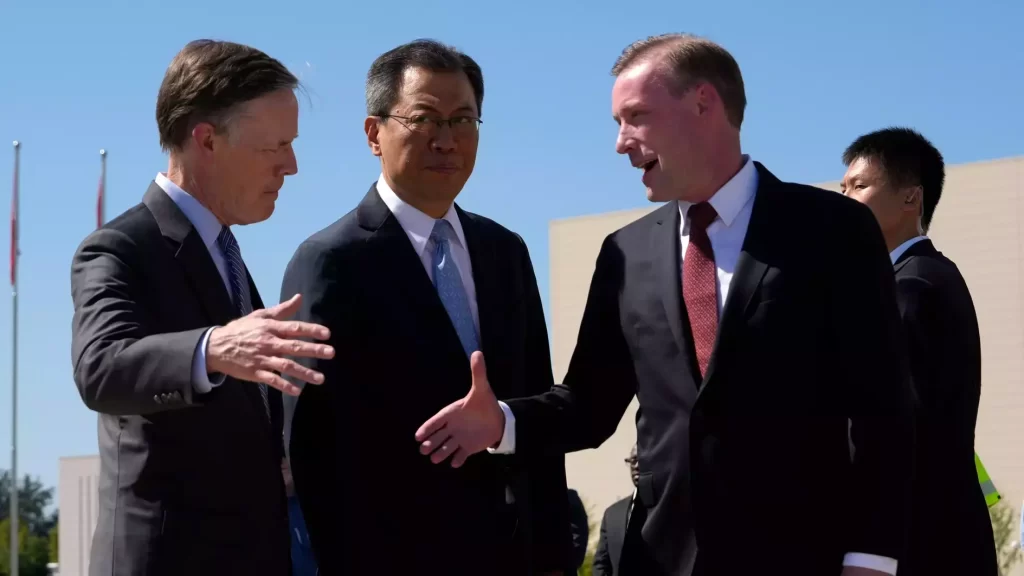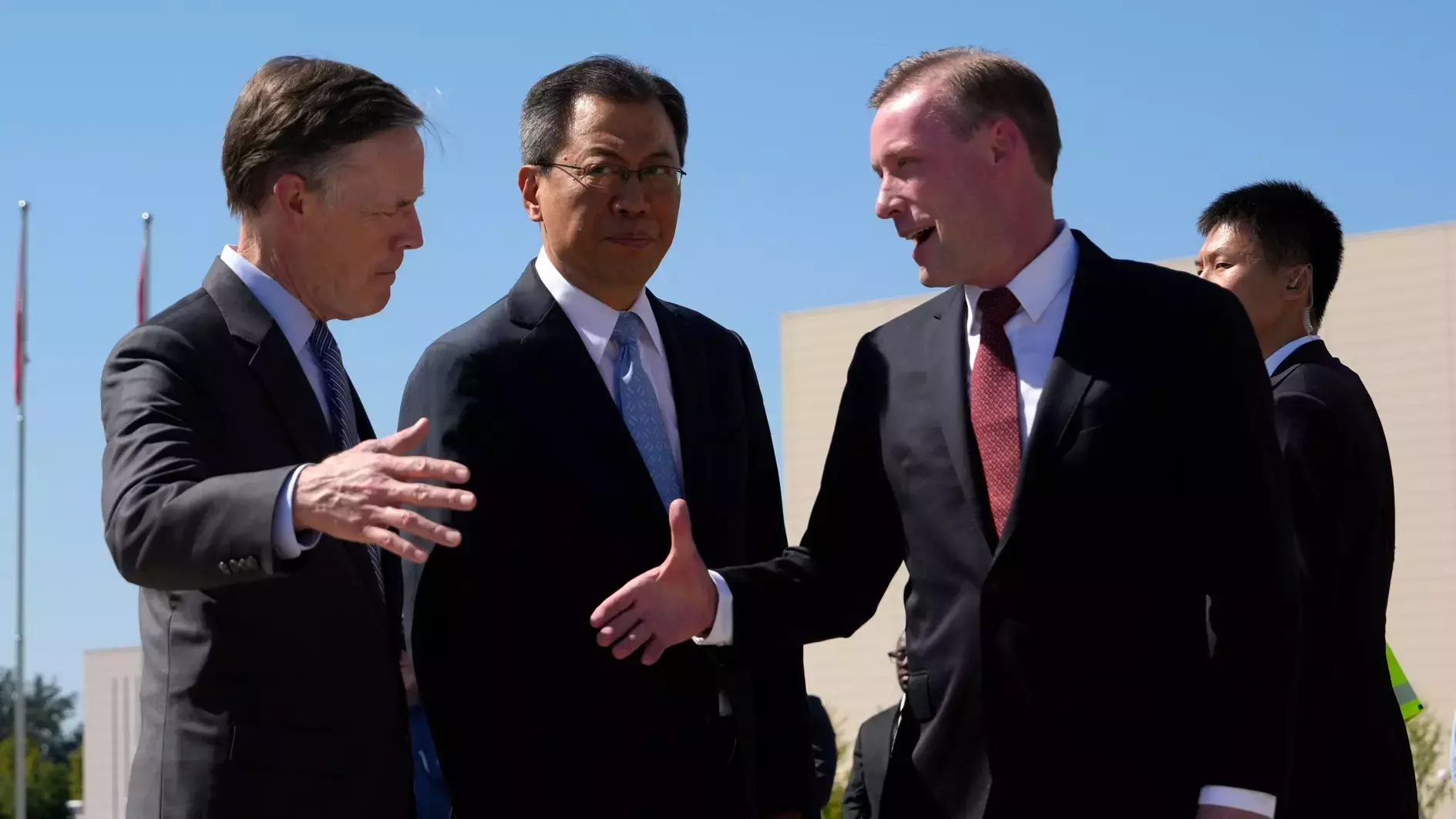
The White House aide’s visit comes amid China’s tensions with Japan and the Philippines over the South China Sea.
The national security adviser of the United States, Jake Sullivan, has met China’s top diplomat Wang Yi as Beijing finds itself embroiled in security rows with key US allies.
Japan scrambled fighter jets after a Chinese military aircraft’s incursion into its airspace on Monday with a military spy plane.
Speaking at a news conference on Tuesday, Chief Cabinet Secretary Yoshimasa Hayashi said the airspace breach – the first by a military aircraft – was “not only a serious violation of Japan’s sovereignty but it also threatens our security”.
Meanwhile, the Philippine defence chief on Tuesday accused China of being the “biggest disruptor” of peace in Southeast Asia following a week of confrontations between the two countries’ ships near a flashpoint disputed shoal in the South China Sea.
Sullivan’s plane landed at Beijing’s Capital airport just before 2pm (06:00 GMT). He was welcomed on the tarmac by US Ambassador to China Nicholas Burns and Chinese Ministry of Foreign Affairs official Yang Tao.
Sullivan met Wang at a resort on the northern outskirts of the Chinese capital, where they shook hands in front of Chinese and US flags.
In his remarks in front of journalists, Wang described China-US ties as “critical” and which have taken “twists and turns”.
“I hope, as always, the communication will be not only strategic but also substantive and, at the same time, very constructive,” he said.
Before proceeding into a closed-door meeting, Sullivan said they would discuss areas of agreement and disagreement that “need to be managed effectively and substantively”.
Busy agenda
In advance of his trip – the first by a US NSA to China since 2016 – an American official said Sullivan would discuss the South China Sea with officials in Beijing, including Wang.
“We are committed to making the investments, strengthening our alliances, and taking the common steps on tech and national security that we need to take,” the official said, referring to sweeping restrictions on US technology transfers to China imposed under President Joe Biden.
“We are committed to managing this competition responsibly … and preventing it from veering into conflict,” she added, speaking on condition of anonymity.
Washington would also press Beijing on its mounting “military, diplomatic and economic pressure” on Taiwan, the self-ruling democracy that China considers part of its territory and has not ruled out reunifying through force.
China has kept up its sabre-rattling since the inauguration this year of President William Lai Ching-te, whose party emphasises Taiwan’s separate identity.
Managing tensions
Sullivan will reiterate US concerns about China’s support for Russia’s defence industry expansion since its invasion of Ukraine.
Beijing counters that, unlike the US, it does not directly give weapons to either side.
The modern US-China relationship was launched when Henry Kissinger, then NSA to Richard Nixon, secretly visited Beijing in 1971 to lay the groundwork for normalising relations with the communist state.
Sullivan and Wang have met five times over the last year and a half – in Washington, DC, Vienna, Malta and Bangkok, as well as alongside Biden and Chinese President Xi Jinping at a November summit in California.
The meetings between Wang and Sullivan were sometimes announced only after they concluded, and the two had spent long hours together behind closed doors.
Sullivan’s visit comes months before the US elections in November.


